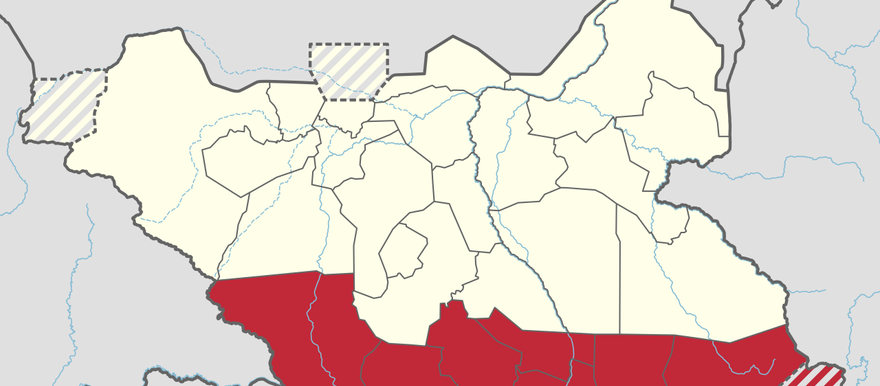The International Committee of the Red Cross (ICRC) says months of conflict and torrential rains have worsened the humanitarian situation with communities now facing a heightened risk of hunger, malnutrition, and disease in South Sudan's Central, Western and Eastern Equatoria states.
In a press release, ICRC said, “Thousands of people who fled their homes to escape clashes lost whatever food, crops, and livestock they had. Floodwaters have left many of the displaced with even less to eat especially in Central Equatoria.”
Amro Ibrahim, ICRC's head of sub-delegation in the Equatorias said many people are believed to be living in the bush and need urgent assistance. "We call on all parties to the conflict to respect their obligations under international humanitarian law to prevent human suffering and ensure the protection of civilians and their property," he said.
Fighting between the National Salvation Front (NAS) – a non-signatory to the peace agreement – and the South Sudan People's Defense Forces, as well as between NAS and the Sudan People's Liberation Movement-in-Opposition, has flared sporadically throughout 2020.
"In May 2020, armed men came from everywhere, burning houses, raping women, beating and killing people. We had to run away to hide in the bush," said Michael, a resident of a village that is now deserted in Central Equatoria State. "We lost everything. We lost our brothers and sisters, our loved ones. We are eating wild fruits, roots as we can't cultivate our fields anymore. Because of the heavy rains, the little food we were able to save is now rotting."
The ICRC and the South Sudan Red Cross say they have assisted more than 120,000 people affected by the conflict in Central, Western and Eastern Equatoria states with emergency food and relief items as well as seeds, farming tools, and fishing kits.
“Renewed clashes between the parties to the conflict will further deteriorate the humanitarian situation and likely cause more displacement. Families and communities impacted by the conflict, heavy rains, and floods are in urgent need of assistance as they are unable to meet their basic needs such as food, clean drinking water, shelter, and health services," the statement reads in part.
According to ICRC, limited health care services in these rural communities are more inaccessible due to continuing insecurity related to the conflict. Displaced families remain at risk of malaria, malnutrition, water-borne diseases, and other health-related challenges.




